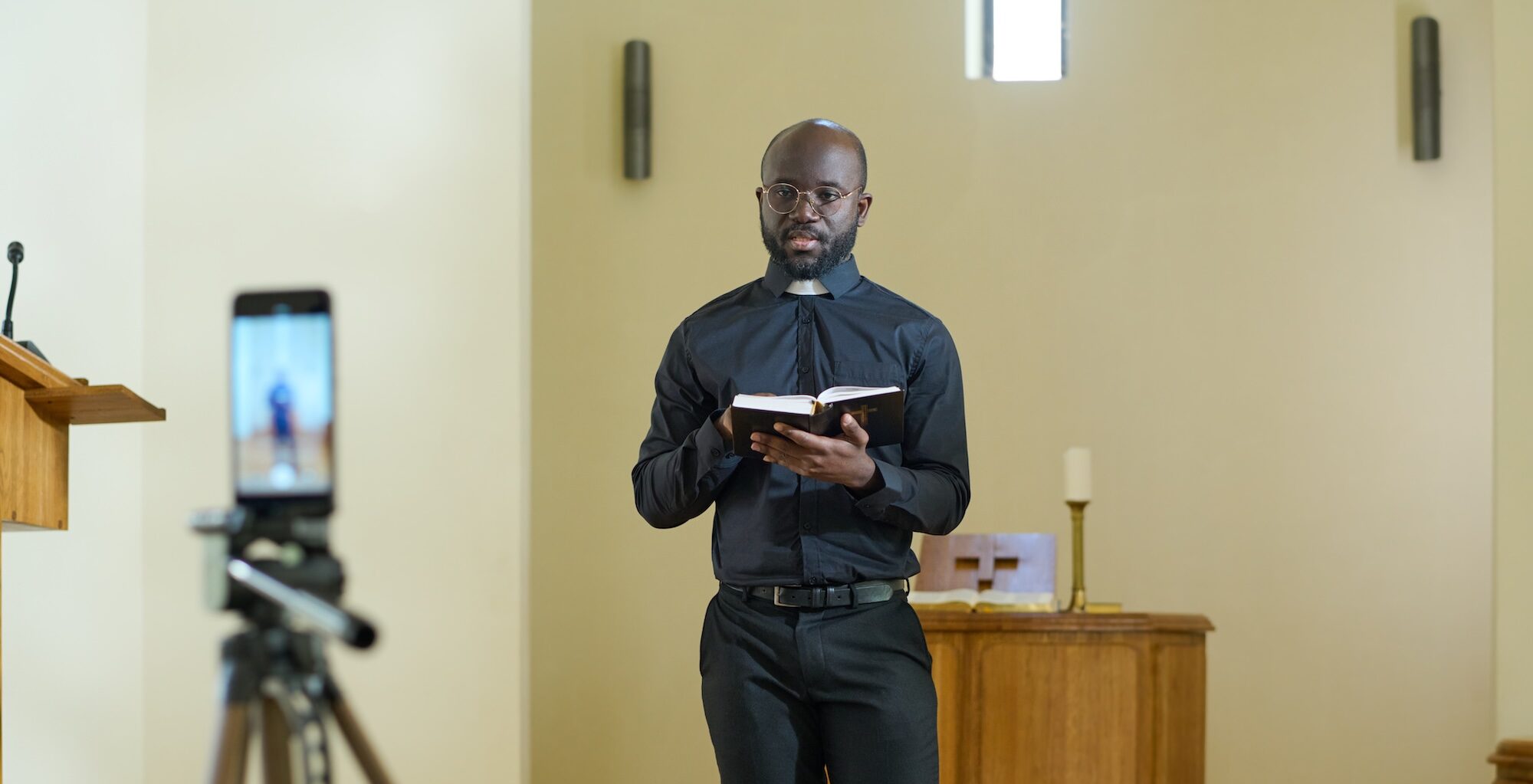It was a Friday night at 10pm, and I was in my office working on the sermon I was to deliver five times that weekend – the first of which was going to take place in less than 24 hours. My friend and Senior Pastor was driving by the church, saw my light on, and stopped by to see how I was doing. “I’ve got nothing!” I said, “This will be the worst message ever preached from this pulpit!” He laughed, but stopped when he realized I wasn’t kidding.
It’s not that I hadn’t prepared. I’d been working on this message for weeks. I’d done all my homework. I had broken down the text in the original language. I’d done my historical and cultural studies. I’d even had a really solid outline, but all week long I’d been trying to flesh it out, and it just wasn’t coming together. I felt like I had nothing to say – or, at least, nothing of value.
I was stuck.
Anyone tasked with delivering a message or writing content for publication knows what it’s like to be facing a deadline and hit a wall where you feel like you just having nothing to say. Assuming you’ve done all the necessary preliminary work up to that point, what can help you get unstuck and deliver the message God has given you with boldness and impact?
Here are six ways to help pastors get out of a sermon-prep rut.
1. Check your heart.
Pray. Ask yourself, “Why am I stuck? Is it a heart issue? Am I preaching to help people connect with God, know Him better, and take one more step in following him more closely? Or am I trying to get people to say ‘Wow! What a great message that was!’ and gain approval?”
I’m by nature a people-pleaser, and I feed on the approval of others. This often got in the way of me delivering the message God wanted me to preach. My struggle that night wasn’t a preparation issue – it was a heart issue!
2. Crowdsource.
You need to do your homework, but it’s okay to ask for others to help fill in the blanks. Gone are the days when the preacher needs to disappear into his or her office and emerge days later with a brilliant sermon that is intellectually challenging, witty, and relationally connected. You don’t have to do it alone!
We write a lot of content here at Vanderbloemen, but we rarely do it alone. We have over 190 years of ministry experience on our team, and we’d be foolish to think that others can’t help us communicate more effectively or give us a fresh insight. We regularly break into groups at staff meetings to answer questions that our clients are wrestling with, and we always find that the whole is greater than its parts.
Here are some ideas of ways you can crowdsource for a message:
- Use social media – ask a question of twitter or facebook.
- Invite your staff and elder team to give input.
- Gather some trusted friends to help brainstorm or give feedback.
3. Simplify.
What’s the one thing that you want to communicate in your sermon this week? Sometimes we get stuck because we try to make things too complicated. Jesus told simple stories that everyone around him could understand and relate to. He didn’t spend a lot of time trying to prove how smart or clever he was. He told simple truths in simple ways that the average person could grasp and apply. Ask yourself: “What’s the one thing people need to walk away with in this message? What’s the single thread of God’s truth that people need to grasp and apply?” Focus on that.
4. Be yourself.
With so much great content out there and so many great communicators, it’s easy to try to imitate a communicator we admire rather than be the communicator we are meant to be. Be inspired and challenged by great communicators, but remember who God made you to be. If He called you to preach or teach He wants to use YOU and not some other well-known communicator. Be yourself. Find your own voice, and don’t settle for imitating others.
5. Trust.
Did I really have nothing to say? Of course not! I had plenty to say. I had done the Biblical work I needed to. I had prepared faithfully. I had a really good outline. I just wanted it to be a home run, when a double would’ve done just fine. At a core level, it was really a matter of trust. I needed to trust in God’s ability to communicate his Word through a fallen, imperfect vessel as He has done since Adam and Eve messed up in the Garden.
6. Deliver the message God gave you with confidence.
I had a preaching professor in seminary who would say, “Every preacher has a message that feels like an ugly dog, and they don’t want to walk it in public. But if Sunday comes and you’ve got nothing but an ugly dog, then go out there and walk that dog proudly. You will likely see God use that ugly dog to change lives!” If you’ve been called to communicate, then be bold and trust that God will use your sermon in ways you can’t imagine.


